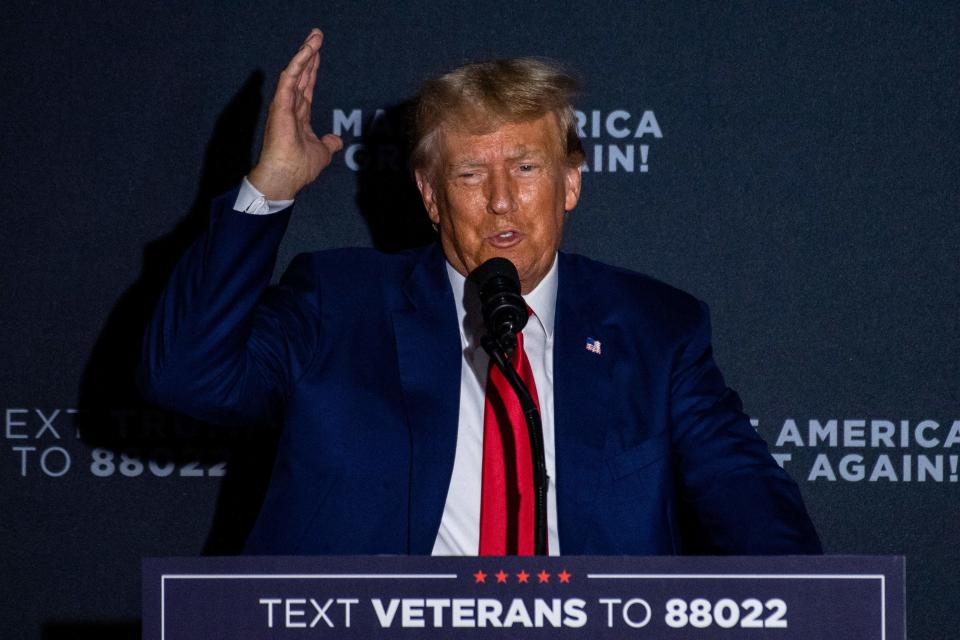Donald Trump pleads not guilty to Georgia election racketeering charges
Donald Trump pleaded not guilty in a court filing Thursday to Georgia racketeering charges alleging he tried to steal the 2020 election.
Trump and 18 co-defendants were indicted Aug. 14 on a combined 41 charges. By entering a plea through a court filing, the former president avoided needing to appear Sept. 6 at a scheduled arraignment hearing.
Trump acknowledged the indictment and discussed the charges with his lawyer, Steven Sadow. He wrote that he understood his right to a hearing and to have the charges read in court, but he waived it.
Other co-defendants have already filed written pleas. Ray Smith pleaded not guilty on Monday, and Sidney Powell and Trevian Kutti each pleaded not guilty on Tuesday.
Trump is free on a $200,000 bond pending trial.

Trump was charged with racketeering, soliciting state officials to violate their oaths of office, making false statements, filing false statements and conspiracy dealing with fake electors in the state. He pleaded not guilty.
The indictment described a series of episodes when Trump urged state officials to change presidential electors, when his lawyers made false claims about election fraud to state lawmakers, and when he asked Secretary of State Brad Raffensperger to alter the election results.
In a separate court filing Thursday, Trump proposed to separate his case from defendants trying to schedule trials faster.
One co-defendant, Kenneth Chesebro, asked to have his trial as quickly as possible. Chesebro is charged with developing the strategy for states that supported President Joe Biden to provide alternate Republican electors when Congress counted votes Jan. 6, 2021.
Fulton County Superior Judge Scott McAfee set Chesebro's trial for Oct. 23, as proposed by Fulton County District Attorney Fani Willis.
But Trump opposed moving that quickly. His lawyer, Sadow, said it would take longer than two months to prepare Trump’s defense for a 98-page indictment and 41 charges against all the defendants.
Powell also asked to separate her trial from other co-defendants. She is charged with tampering with election equipment in Coffee County, Georgia, and has pleaded not guilty.
The Georgia case is one of six trials Trump faces in the next year as he campaigns for president, although the dates could slip as lawyers argue about what evidence can be included in each of the cases:
New York Attorney General Letitia James has a $250 million civil trial scheduled against Trump’s company on Oct. 2, which could last six weeks.
E. Jean Carroll has a $5 million defamation case in New York scheduled for trial Jan. 15 – the day of the Iowa caucuses ? and projected to last two weeks.
Justice Department special counsel Jack Smith has trial on election conspiracy charges set for March 4.
In Georgia, Fulton County District Attorney Fani Willis proposed to start her trial March 4. A judge hasn't set the date yet.
Manhattan District Attorney Alvin Bragg has a trial that could last five weeks set to start March 25 on charges of falsifying business records.
Smith has a tentative trial date for charges of mishandling classified documents May 20. The trial will take an estimated five weeks.
This article originally appeared on USA TODAY: Donald Trump pleads not guilty to Georgia election racketeering charges
